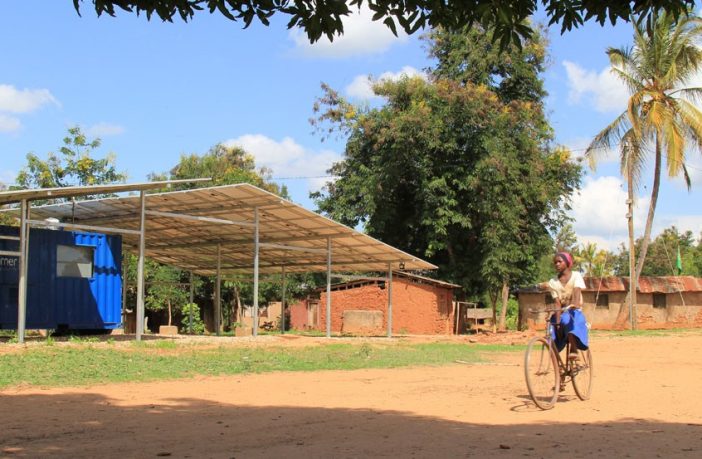- French energy company ENGIE has installed its first mini-grid in Zambia which will power a village with a population of 1500 people.
- The mini-grid in Chitandika provides energy to households and local businesses and supports a health centre and two schools.
“With the installation of this first PowerCorner, Engie confirms its progress in off-grid renewable energy solutions to improve electricity access in Africa,” the company states. “Engie’s PowerCorner will foster economic development by enabling other electrical productive uses (such as water pumping for agriculture use or carpentry and welding machines) and by triggering business opportunities for entrepreneurs in the village.”
As part of its decentralized energy developments, ENGIE is also expanding Fenix, its solar home system business. Since the launch of its operations in Zambia in October 2017, ENGIE Fenix has reached 70,000 customers in the country, supplying 350,000 people with lighting and power.
ENGIE chief executive Isabelle Kocher said: “We believe that universal access to electricity is possible in the foreseeable future thanks to a smart combination of national grid extensions, mini-grids and solar home systems, depending on the local characteristics of energy demand. It is ENGIE’s role to make a cost-efficient zero-carbon transition possible for the benefit of the African population.”
Zambian Minister of Energy, Matthew Nkhuwa was present at the project commissioning.
ENGIE has successfully developed its own approach to mini-grids for the electrification of villages in Tanzania in addition to Zambia with a total of 13 mini-grids in operation or construction. ENGIE is pursuing its goal to develop 2,000 mini-grids by 2025 in Africa enabling 2.5 million people, entrepreneurs, SMEs and local businesses to access renewable, reliable and cost-effective energy.
Author: GBA News Desk















